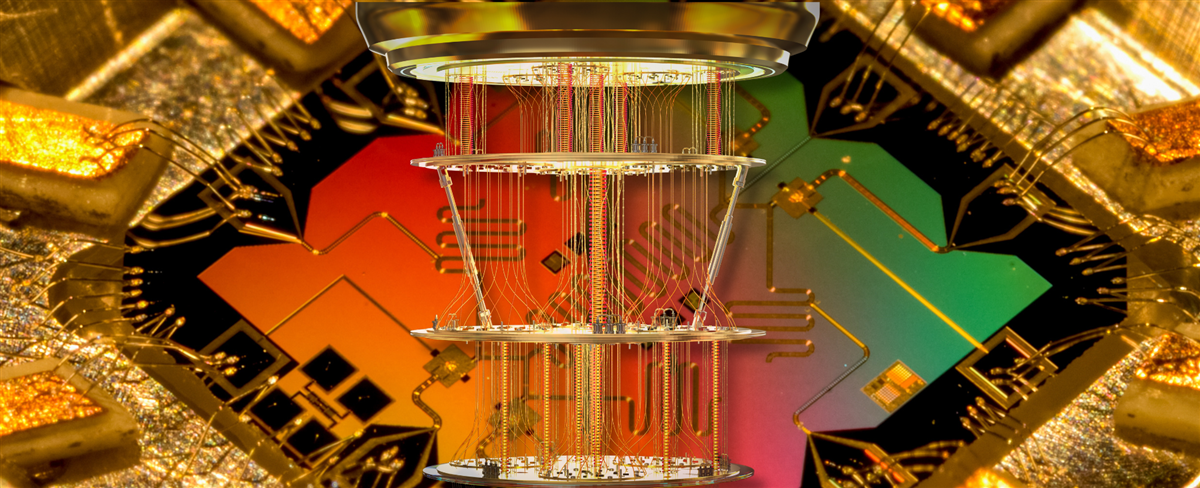Quantum Opportunity: Skywater Technology's Long-Term Potential Skywater Technology is a semiconductor manufacturer and development company with an interesting business model. It also has quantum computing upside.
By Leo Miller
This story originally appeared on MarketBeat

After Google's parent, Alphabet (NASDAQ: GOOGL), announced a breakthrough in quantum computing with its Willow chip, stocks linked to quantum tech have soared. Rigetti Computing (NASDAQ: RGTI) has seen its value rise several times over in just a month. However, one company that has seen a less substantial rise is Skywater Technology (NASDAQ: SKYT). Shares are up around 61% in the past month as of the Jan. 2 close.
The company’s business is more diversified than just quantum computing, which is why its value hasn’t seen the same meteoric rise. However, the company generates much more revenue than Rigetti. Yet, it trades for a fraction of its valuation. This begs the question: Is Skywater a more fairly valued quantum computing stock at this point that can benefit in the long term?
Skywater: Working to Develop Next-Gen Semiconductors
Skywater is a semiconductor manufacturer commonly referred to as a foundry. However, Skywater differentiates itself by focusing on developing future semiconductor technology. The company achieves its goals by uniquely funding the development of these technologies.
Skywater uses what it calls its customer-funded CapEx model. Customers, through this model, provide upfront capital. It funds the development of its custom semiconductor solutions. This allows Skywater and its customers to share the risk of developing innovative technologies that may not have commercially viable applications for some time. The company's Advanced Technology Services (ATS) segment generates revenue through this co-development process.
After development, Skywater’s goal is to transition into actually manufacturing and selling the product to its customers. Customers often help the company buy tools to produce these technologies. The company’s Tools segment generates revenue from this. Once Skywater sells the developed products, the revenue goes to its Wafer Services segment. In Q3, AST, Tools, and Wafer Services revenue accounted for 60%, 33%, and 7% of total revenue, respectively. The company’s $94 million in total revenue was a 31% increase from the previous year. However, Wafer Services revenue declined by 54% due to continued weakness in the industrial segment end market.
Skywater: Rising Revenue and Positive Earnings
Financially, Skywater is moving in the right direction. The company increased its adjusted gross margin by 190 basis points from Q3 2023. Additionally, it slightly increased its adjusted earnings before taxes, depreciation, and amortization (EBITDA) margin to just under 12%. Its adjusted EBITDA has been positive for nine straight quarters. It also had positive adjusted net income in the last two quarters. It is not expected that this will continue next quarter, as abnormally high tool revenue has contributed to this. Still, these are positive developments.
Quantum Computing and Benefits of Skywater’s Business Model
In the company’s annual report, it makes several mentions of its involvement in the quantum computing space. It initially started working with D-Wave (NYSE: QBTS) back in 2013. Since then, it has expanded its customer base in this market. It now includes many firms developing proprietary tech for quantum and supercomputing. D-Wave specializes in the quantum annealing approach to quantum computing. It also states it has worked on photon-based quantum computing.
This is where its partnership with PsiQuantum comes in. PsiQuantum plans to develop its chips for quantum computing at Skywater's plant in Bloomington, Minnesota. However, the photonic quantum computing approach is different from the gate-based approach used in Google's Willow chip. This indicates that the technology is not as far along. However, the approach offers significant benefits over Google’s approach if it can become viable. This includes the fact that the chips can operate at room temperature. Meanwhile, Google must keep its chips at absolute zero temperature. This introduces substantial energy costs to maintain these extremely low temperatures. However, certain components of PsiQuantum’s systems still require cryogenic temperatures.
Skywater has extensive experience in developing quantum computing technology using multiple approaches. This gives the company the ability to benefit long-term as technology develops. It is also generating significant revenue and adjusted profits. This could make it a more stable play than other quantum stocks, which barely have revenue.
Additionally, the developmental nature of the company’s business may make its revenue streams less volatile than other foundries. For example, amid the slowdown in the chip industry aside from AI, Global Foundries (NASDAQ: GFS) has seen revenue fall substantially since 2023. Meanwhile, Skywater's revenues are rising. The next-gen nature of the technologies Skywater develops may mean customers are willing to keep paying, even in a slowdown. Although not a quantum pure play, Skywater is an interesting business with quantum upside. Its forward price-to-sales ratio is just over 2x, compared to Rigetti Computing’s 386x.










